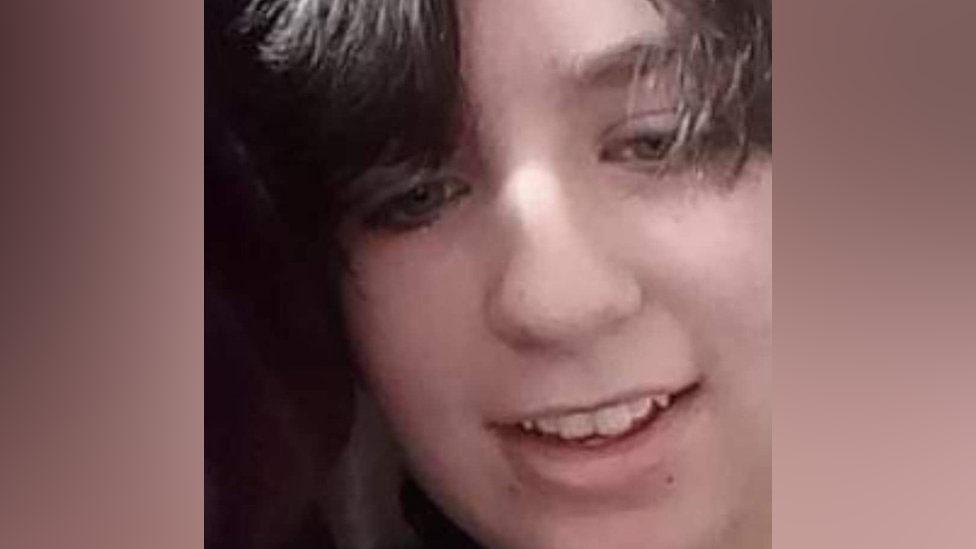Barnsley trans teen's death prompts mental health review call
- Published

Alex Dews, 13, from Barnsley, died in hospital on 18 July 2022
A coroner said she intends to call for a review of the way mental health referrals are made by schools following the death of a transgender teenager.
Alex Dews, 13, from Barnsley, died in hospital on 18 July 2022, four days after he was found seriously injured in a country park.
An inquest heard that before his death he had told staff at his school he wanted to kill himself.
Coroner Abigail Combes said there were "issues that need resolving".
The resumed inquest in Sheffield heard Alex had expressed the wish to identify as male after starting at Outwood Academy Shafton and he had been placed on the school's vulnerable list.
Later that month the coroner said Alex had self harmed at school, but that the incident, which should have triggered a risk assessment, but was not properly logged.
Outwood Academy executive principal Cara Ackroyd told the court this was the type of incident she would "usually" expect to be recorded by staff.
Following this, another self-harming incident was disclosed, which resulted in Alex being placed on the waiting list for mental health support iSpace.
Then in March 2022, Alex wrote a note to his teacher, expressing thoughts of suicide.
As a result, he was bumped up the risk register and iSpace waiting list, and later that month began six weeks of counselling.
The coroner noted that Alex began counselling and, at his second session, disclosed that he had attempted an overdose.
She said that he also told the deputy safeguarding lead at the school that he wanted to end his life.
The inquest heard the school did not make a referral to Child and Adolescent Mental Health Services (CAMHS) due to concerns Alex would be removed from the waiting list as he had already been receiving iSpace support.
After the iSpace sessions ended in May 2022, although a handover suggested further engagement might be useful in the future, there was no detail and no follow-up.
The coroner noted that despite there being evidence of a deterioration in Alex's behaviour at school, there were no further incidents of self-harm or expression of suicidal intent and the school could not have assumed "there was a real or immediate threat to Alex's life".
Ms Combes said the school eventually decided to make a referral to CAMHS in June but this was about putting in place support for the next school year rather than an immediate fear for his life.
Recording a narrative conclusion Ms Combes said while she was "satisfied that there are processes in place... there are absolutely identifiable individual failures of following those processes [though] these are not sufficient to amount to systemic failure".
She said she would be writing a prevention of future deaths report to organisations, including the Department of Health and Social Care, about her concerns over the way referrals are made to CAMHS, saying she had been left "slightly horrified" the school was left to make crucial decisions about which services to refer Alex to.
She said she also had concerns about the way schools and counselling services share information.
Addressing the family, she said: "I know that the conclusion I've reached is not quite the view you hold but I hope you understand why I've reached that conclusion.
"I can absolutely see that there are issues that need resolving."
Paying tribute to her grandson during the earlier hearing in June, Susan Dews said Alex "would always be here with us".
Her statement read: "We have all got so many good memories of our time spent with Alex and these memories will always be talked and laughed about and we will be making new memories for him."
The BBC has approached Outwood Academy for comment.

Follow BBC Yorkshire on Facebook, external, Twitter, external and Instagram, external. Send your story ideas to yorkslincs.news@bbc.co.uk, external.